About the 10-year anniversary event
After 2019's very first and hugely successful summit in Berlin and our cancelled attempt in 2020 we are giddy with excitement to announce our next summit for 2024, which will also mark our 10-year Accessibility Club anniversary 🎉! Again, the summit will (hopefully) be jointly run by multiple web accessibility and inclusive design related meetups from all over Europe, and again there will be a premiere: For the first time, the Accessibility Club will meet outside of Germany, this time welcoming you to Amsterdam!
The summit will take place right after CSS Day 2024 and again feature a full-day barcamp and a second day with community run workshops. There are still a lot of details to be figured out, but you should definitely save the date already!
Join us for two days of gaining knowledge about web accessibility, exchanging experiences and meeting like-minded enthusiasts from all over Europe and beyond: June 8th-9th, 2024, in Amsterdam, Netherlands!
How do I benefit?
As an accessibility enthusiast, you will meet a lot of like-minded people from various disciplines and with all sorts of skill level. You will be able to share your experiences, broaden your horizon and make new friends.
As a meetup or event organiser, you will get new impulses for your events, put them into a bigger context and just have a lot of fun with your usual attendees who will hopefully join you to the Summit. Take it as a super-social excursion that takes you out of your usual boundaries. 😉
Organising? Join in!
If you're organising an accessibility meetup, inclusive design related event or anything similar and want to get involved with the Summit, please get in touch. We hope to be able to mobilise many accessibility enthusiasts from Germany, the Netherlands and many other countries. We'll try to get in touch with as many groups and meetups as we get to know of, but you're welcome to be faster than we are. You don't necessarily have to take an active role but we'd still appreciate your input.
Barcamp + Workshops
We'll run the summit as a 2-day event, taking place at several locations in Amsterdam:
- Day 1 is all about conversation and sharing experiences. Barcamp-style sessions mixed with a handful of pre-planned presentations for all attendees, pretty much like we had at the Accessibility Club Summit 2019 in Berlin.
- Day 2 is for learning, expanding our knowledge and putting things into practise. Visit one of several workshops about developing and designing accessible websites and digital content, run by community members like yourself.
Pre-planned presentations
For the barcamp day, we'll use a hybrid schedule style with spontaneous sessions and pre-planned presentations. In April 2024, we conducted an anonymous Call for Presentations to determine these pre-planned presentations. A 14-member jury, consisting of dedicated enthusiasts from the Accessibility Club community who volunteered for this task, selected 6 presentations from the many submissions, which we believe will provide a highly interesting basic programme for the Summit. The schedule below shows you the performers and topics you can expect to see at the Summit. We will finalise the exact order shortly before the event.
In addition to the pre-defined presentations, there will be further parallel sessions, which will be jointly decided on the morning of the event in the style of a barcamp. Each participant can propose a session — it does not have to be a prepared presentation. Just bring your own topic! It can be a discussion round, an exchange of experiences, or you are welcome to show what you have been working on recently. The audience will decide together which topics will become a session.
Schedule
| Time | Agenda item |
|---|---|
| - | Android Accessibility: Do or DoThis presentation shows the main accessibility problems users face and what to do with them. It is more convenient for blind people to use a smartphone than a computer! Of course, this statement is not true for everyone, but there are more and more smartphone users, and mobile operating systems are very quickly developing an accessible environment. Creating an application and uploading it to the store is also becoming easier. But these apps are often inaccessible to users with disabilities and do not work properly with accessibility settings (such as larger fonts). Glafira will go through the main problems that users face and tell you what to do with them. Performed by |
| - | A world made for everybody?A presentation about humans, perception and some philosophical questions. And lots of illustrationsn/comics. Did you know that the old greeks (back at homers time) did not have a word for the color blue? Hard to imagine, isn't it? Perception must be learned. Essentially, Annabelle's presentation will be about showing how perceptions have changed over time. What things do we take for granted today? Language shapes our world. That's why it's so important to speak out and openly address problems. Be the change you want to see in the world. That sounds so cheesy, but is true. Today, accessibility on the web may be a special thing, a difference from the norm. But we can shape this norm, sharpen our perception and be the change we want to see. Performed by |
| - | Decoding the Impact: Accessibility Overlays Through a Scientific LensAccessibility overlays are heavily criticised within the accessibility community regarding their effectiveness and whether they meet the needs of the intended user group. This talk details the impact accessibility overlays actually have on usability and user experience, backed by academic research. Access to digital information is crucial for social inclusion and equal opportunities. Unfortunately, most websites contain accessibility errors, creating a significant barrier for users with impairments. Accessibility overlays have emerged as a potential solution. However, despite their intended benefits and rapid market growth, accessibility overlays face significant criticism within the accessibility community. Various voices question their effectiveness and whether they meet the needs of the intended user group. This talk details the actual impact accessibility overlays have on usability and user experience, backed by recent academic research. The results of a technical evaluation and research conducted with individuals with permanent visual impairments will be presented and discussed, adding new and supplementary information to the discussion. Performed by |
| - | Modern CSS Upgrades To Improve AccessibilityModern CSS provides capabilities we can leverage to make layouts and components more accessibly inclusive for users of all abilities across any device. You'll learn about adjustments to focus states, spacing, color, and more. CSS features and behaviors have grown exponentially over the past few years, so let's dive into features that can enhance the accessibility of interactive experiences. Most features are well supported across evergreen browsers so you can start using them right away! Others make for excellent progressive enhancements, meaning they will provide an even more optimal experience when used in a supporting browser. We'll also sneak a peek at incoming features that directly impact accessibility, and that you can provide feedback on to the CSS Working Group. While encouraging the development of inclusive experiences is the goal of this talk, you're sure to learn some new things about CSS to extend and apply in multiple scenarios. Performed by |
| - | Navigating the Accessibility Journey: From Proof-of-Concept to Organisation ModelThis talk will explore how to integrate accessibility into design and development processes. Anastasiia will share not just their successes but also the mistakes they made. Learn about raising awareness, building a team, planning, and the challenge of convincing stakeholders. With the European Accessibility Act coming up in June 2025, it’s likely you’ll need to start thinking more about making your products accessible. How do you get started, and who will help you do it? Anastasiia will share her journey of promoting accessibility within the organization: starting from initial advocacy and awareness, to executing a proof-of-concept that demonstrated the tangible benefits, and finally, developing a comprehensive strategy to integrate accessibility across the entire department. The presentation will cover the practical steps taken, challenges encountered, and valuable lessons learned along the way. This session is for anyone who wants to know how to build a team, pitch a vision, and scale accessibility practices effectively within an organization. Performed by |
| - | “Built-in” accessibility: blessing or curse?There's talk of “building in” accessibility, but the risk of overpromise and disappointment is real. This talk proposes some ways to be effective at removing barriers from your products at scale. “We'll build in accessibility”, they say. Whether it's in standards, browser functionality, web platform features or design system components … the resulting reality could be anywhere from an enormous opportunity to a huge disappointment. There's something at stake here. And as an accessibility specialist, you should probably ask questions. In this talk, we'll look at how “built in” can be effective and how it helps NL Design System to remove barriers at scale. Performed by |
The exact order of the presentations is still undecided and will be finalised shortly before the Summit. Until then, all presentations will be shown at the same time.
Performers
-
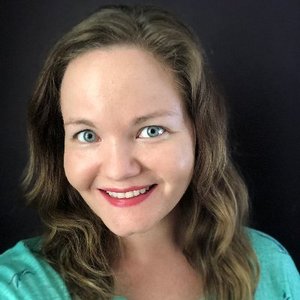
Stephanie Eckles
Front-end focused software engineer, advocate for accessibility, scalable CSS, and web standards
- Internet
- https://thinkdobecreate.com
- Mastodon
- @5t3ph@front-end.social
-
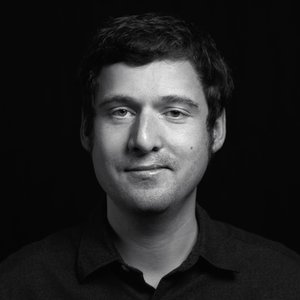
Hidde de Vries
Freelance front-end developer, excited about web standards, HTML, CSS, JavaScript and accessibility
- Internet
- https://hidde.blog
- Mastodon
- @hdv@front-end.social
-
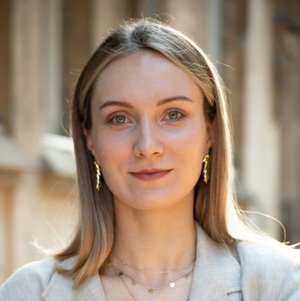
Anastasiia Batarei
Front-End Engineer with a keen eye for design
- anastasiia-batarei-213281121
-
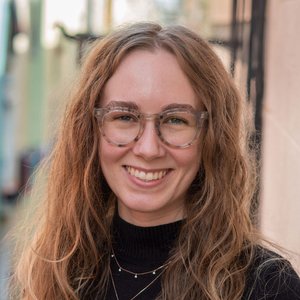
Daniela Kubesch
Accessibility engineer focusing on frontend development, testing and user research
- Internet
- https://dnikub.dev
- Mastodon
- @dnikub@front-end.social
-
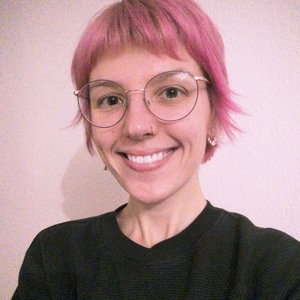
Annabelle Feiler
Graphic designer, Illustrator and UX/UI designer
- Internet
- https://annabelle-feiler.com
- annabelle-feiler
-
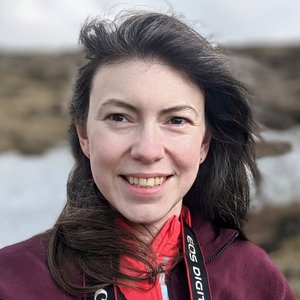
Glafira Zhur
Accessibility Project Manager at Semrush, GDE for Web
- glafira-zhur
Call for Workshops
At our Berlin Summit in 2019 we organised 8 community-led workshops for the first time and had a whopping 120 people participating in these. We consider this a fantastic success and thus would like to repeat it:
On Sunday, June 9th, we'll feature a couple of workshops around web accessibility topics again. Instead of running the workshops ourselves, we'd rather like to offer you, the community, a platform for sharing your experiences, educating and mentoring each other with your own workshops. Let's complement the listening part of the Summit, the Barcamp on Saturday, by a day of doing and putting things into practice.
Here's the call to action: Please think about it for a moment and send us your proposal for a workshop you'd like to host and run. Everone may submit a proposal — there's only a small set of rules to comply with. Don't worry about a location for the workshop: we'll provide it, along with the registration stuff.
Preferably, the workshops should be held in English language, but that's not an absolute must. We can think of all sorts of design, development and society related topics. If you're unsure please don't hesitate and simply start a conversation. We want to make the Summit an event of knowledge sharing and conversation and we ultimately need your contribution to make this happen! All the workshops accepted for the Summit will be scheduled and published on this website.
A small set of rules
We don't want to impose a lot of requirements on the workshops, but for a start:
- Each workshop must focus on educating about and implementing accessibility topics. No commercially motivated sales stuff, please!
- The workshops must generally be open to anyone and follow the rules of our Code Of Conduct.
- The workshops may be half-day (2-3 hours) or full-day (5-6 hours, plus a decent lunch break).
Each full-day workshop will cost € 50 (incl. 19% VAT) per attendee, and € 25 for a half-day workshop. Registration for the first workshops will open as soon as possible. 20% of the fee revenues will be used to support the overall Summit organisation, while the rest will be given to the workshop hosts in case a) they want it and b) they're able to write a proper invoice (or something similarily valid) accepted by German tax authorities.
Please be aware that this set of rules might be subject to change if we discover it to be lacking something important. By sending us a workshop proposal you confirm to agree with these rules (and our Code of Conduct, of course).
Tickets
As always, we do our best to keep the tickets for both the barcamp and the workshops as affordable as possible. Tickets for the 2 days have to be bought separately.
We're using Tito's pay-what-you-want option again: Starting at a minimum of € 25 (incl. German VAT), the standard price for the barcamp is € 30. Please consider raising this to your liking and capabilities — you'll help us adding more value to the event. Or — even better — get one of our scholarship supporter tickets and unlock a free ticket for someone who can't afford attending otherwise.
Ticket scholarships
If you really want to attend the barcamp but can't afford buying a ticket, please don't hesitate and get in touch with us. We're giving away a free scholarship ticket for every supporter ticket that has been sold. There is no formal application process — please just write us a nice email and let us know a bit about you. We love to help you out! 😊
Workshop tickets
Attending the workshops on Sunday, June 9th, should be affordable as well:
- Half-day workshop for € 25 (incl. German VAT)
- Full-day workshop for € 50 (incl. German VAT)
80% of the ticket revenues will be given directly to the hosts. We will add the workshop tickets to ticket sales as soon as we have launched the Call for Workshops and received the first workshop proposals.
Locations
The barcamp part of the summit will take place at the Amsterdam University of Applied Sciences where Vasilis is being a lecturer. It's not yet clear which exact building we will be using, but we'll figure this out in the next couple of weeks.
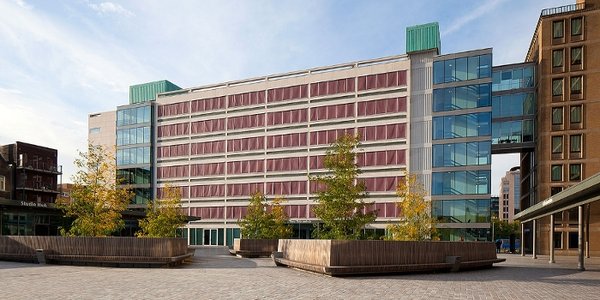
The workshops will be hosted at different locations across Amsterdam — design studios, agencies and other companies. We'll list them here as soon as we got hold of their details.
Accessibility Info
As with all our events, we'll try to make the Summit itself as accessible as possible so that all folks can afford, enter and enjoy the event. We'll make every effort to provide (not only but including; in order of priority):
- a welcoming atmosphere with special attention to visible and non-visible disabilities, privacy, identification & communication preferences as well as neurodiversities
- easy physical access to the venue(s) including public transport and wheelchair accessibility inside the venue(s)
- access and supplies for assistance animals
- live captioning & streaming of at least the pre-planned presentations (including public links to the caption & video streams)
- food / beverages with different options for various dietary needs and preferences
- sign language interpreters in different languages
However, as you can imagine, many of these features come with quite some costs or requirements regarding the venues. At the time of this writing, there are still a lot of open questions, so we cannot yet guarantee that we'll be able to match all of them. We'll do our best to keep you posted about the current situation.
Sponsoring
While the Summit is set to be a community event, run by enthusiasts for enthusiasts, we will still need some funding for major matters of expense and to keep the financial barrier for attendees low. If you'd like to support our effort — by contributing money, food or anything else that might truly benefit our attendees — please get in touch. We're very flexible will try to match your needs as much as we can. However, please don't expect us to distribute useless swag or other materials that aren't sustainable or have no association with accessibility matters.
Need help to convince your boss (or yourself) to support the Summit? We've got you covered! Please have a look at our Sponsorship Information brochure in English or German language.
Code of Conduct
As with all our events, we've got a Code of Conduct in place which will be enforced during both days of the Summit. It's there to ensure maximum inclusivity so that everyone can feel welcome and comfortable. Please make sure you read and understand its contents before registering, attending or submitting a presentation or workshop proposal. It goes without saying that our Code of Conduct also applies to our valued presenters, sponsors and supporters.
How do I stay updated?
Slack Team
You can either join the #announcements channel in our Accessibility Club Slack Team. We use the Slack team for organisational tasks as well as community stuff. If you'd like to broaden its purpose and make it an even more open platform, we'd love to hear your ideas!
Hosts
-
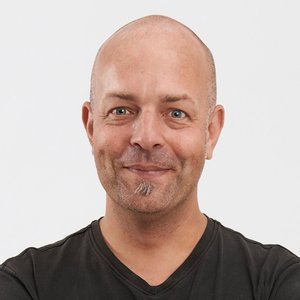
Joschi Kuphal
Designer, programmer, lecturer, event organiser and restless tinkerer from Nuremberg
Joschi is working on the web since the mid 90s and founded the web agency tollwerk in 2000, which he continues to shape to this day. He has shared leadership of tollwerk with his team in an equal, cooperative and self-organizing way since 2022. He launched a couple of event series like the border:none and Material conferences, the Accessibility Club and the CoderDojo Nürnberg. He's occasionally running IndieWebCamps, hosting the monthly accessibility webcast technica11y and used to be one of the driving forces behind the Nürnberg Digital Festival.
- Internet
- https://jkphl.is
- Mastodon
- @jkphl@mastodon.social
- joschikuphal
- Github
- @jkphl
-
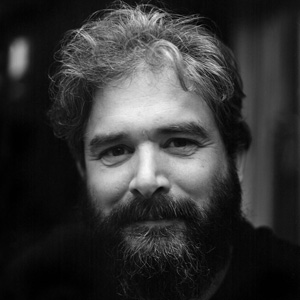
Vasilis van Gemert
Lecturer in Amsterdam
Vasilis teaches the next generation of digital product designers how to design things for the web. Preferably things that work for everyone. He does this at the University of Applied Sciences in Amsterdam. He successfully completed the Design Master program at the Willem de Kooning Academy in Rotterdam. During his research he designed tailor made websites for real people with real disabilities. Vasilis has published over 20,000 books about form and colour.
- Internet
- https://vasilis.nl
- Mastodon
- @vasilis@social.vasilis.nl
-
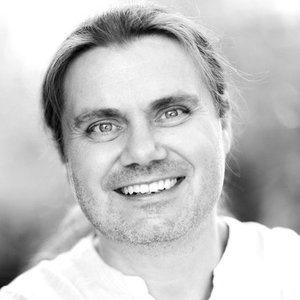
Marc Haunschild
Marc Haunschild has mastered the theory and practice of accessible web development. He has over 20 years of experience as a developer, speaker and author of specialised books and has been working in adult education for more than ten years. As a freelance accessibility consultant, he advises clients from business and the public sector, from schools to federal ministries, from independent developers to software system houses.
- Internet
- https://accessibility.consulting/en